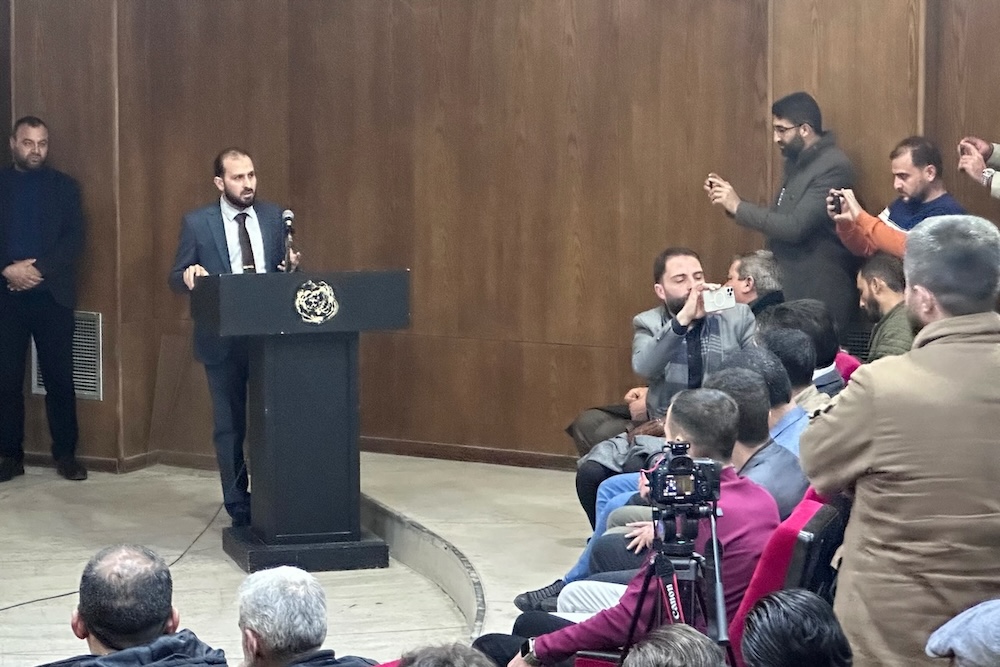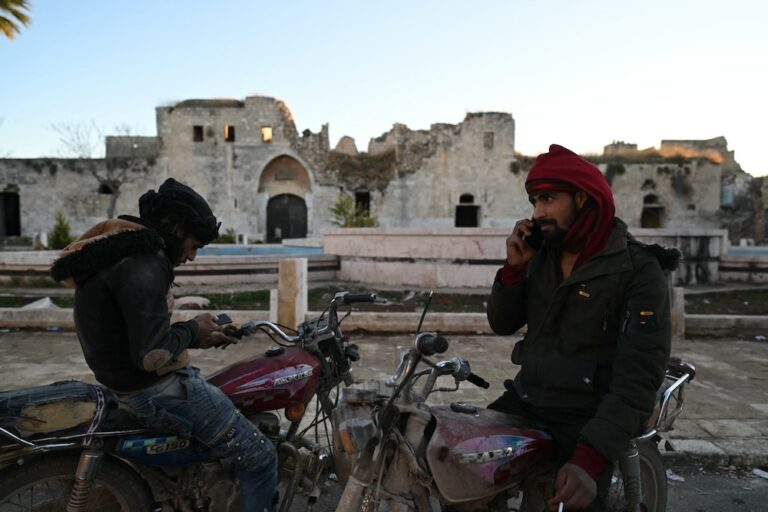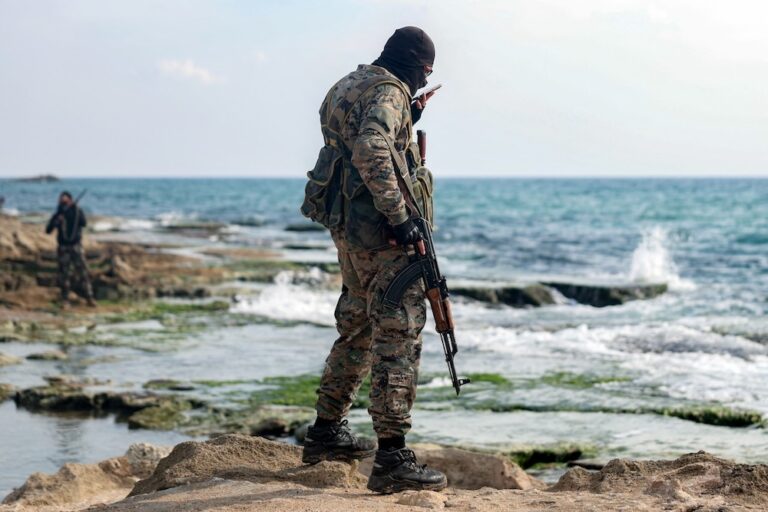The transitional government promises press freedom, but must act to release detained journalists and hold perpetrators accountable for past killings.
This statement was originally published on rsf.org on 7 January 2025.
On the first day of 2025, the Information Minister of Syria’s new de facto government promised to improve press freedom in the country. Reporters Without Borders (RSF) welcomes this commitment while reminding the authorities of their responsibility for the journalists who were killed, abducted, or who disappeared since the start of the revolution in 2011. RSF calls on this transitional government to immediately implement seven recommendations, starting with the release of the 20 journalists still held by rebel groups.
According to Agence France Presse (AFP), Syria’s new Minister of Information Mohamed al-Omar promised to work towards “a free press” and commit to improving “freedom of expression” on 1 January 2025. The statement is a good omen for Syria’s reporters, many of whom have suffered immensely working in a country that ranks 179 out of 180 in RSF’s 2024 World Press Freedom Index.
Yet despite this encouraging rhetoric, the new transitional government – a coalition of rebel groups led by Hayat Tahrir al-Cham (HTS), which overthrew Bashar al-Assad’s regime on 8 December – has yet to take vital, necessary steps in this direction. Most notably, all media professionals detained since the start of the revolution in 2011 must be released; At least 20 of them are still being held by armed rebel groups, including HTS. Justice must also be served for the seven murdered journalists who were allegedly killed by members of HTS. At least 283 reporters have been killed in connection with their work since the revolution in 2011, 181 of them by Bashar al-Assad’s regime and its allies, according to RSF figures. The deposed president and every other individual responsible for these crimes must be held accountable.
“The new Minister of Information’s statement on press freedom is encouraging. Freedom for journalists is long overdue in Syria, and the fall of Bashar al-Assad’s repressive regime offers a historic opportunity to guarantee the freedom and safety of media professionals, as well as the Syrian people’s right to information. This would allow the country to move up from its penultimate ranking in RSF’s World Press Freedom Index. We call on the new authorities to honour their promise by implementing our recommendations, starting with the release of the journalists still held by rebel groups and their allies.”
Jonathan Dagher, Head of RSF’s Middle East Desk
RSF’s seven recommendations to Syria’s new authorities for improving press freedom:
1- Deliver justice for the journalists victimised by the Assad regime and shed light on their fate and whereabouts: provide information on the fate of the 25 journalists disappeared, detained and subjected to enforced disappearance by Bashar al-Assad’s regime, of whom there has been no news since the regime fell. Preserve all evidence concerning the 181 journalists murdered since 2011 whose deaths have been attributed to the Bashar al-Assad regime and its allies, and bring the perpetrators to justice following international standards.
2- Release the journalists victimised by rebel groups and deliver justice on their behalf: liberate the 20 journalists taken hostage by rebel groups since 2011, including HTS. Conduct transparent, independent investigations into the murders of the 19 journalists killed since 2011 allegedly at the hands of rebel forces – including 7 deaths attributed to HTS – and bring to justice all parties that played a role in these crimes against journalists, in accordance with the rule of law.
3- Find hostage journalists, and identify and bring to justice all parties responsible for crimes against journalists: shed light on the fate and whereabouts of the 20 journalists kidnapped by the Islamic State in 2013 and, in accordance with international standards, bring justice to all members of the Islamic State responsible for the murders of 22 journalists. Identify and prosecute the perpetrators of the 53 journalist murders that remain unsolved. Investigate and prosecute those responsible for the six journalists allegedly killed by Turkish army strikes, and one journalist whose death in 2012 is attributed to the Syrian Democratic Forces. Work with national actors to secure the release of all reporters detained in Syria, including a reporter who remains the victim of enforced disappearance to date in Rojava – the autonomous Kurdish zone in northeast Syria.
4- Protect and support the journalism profession: protect all journalists, local and foreign. Prevent attacks on them and attempts to obstruct their work. Facilitate journalists’ access to events and locations and their ability to travel around the country, including journalists from foreign media outlets.
5- Abolish all obstacles to journalism: Abolish all measures and practices by state and non-state groups that hinder the work of journalists and media outlets, especially tactics to censor and surveil journalists, media professionals and sources.
6- Guarantee a free, diverse media landscape: protect all media professionals and outlets, against intimidation, discrimination and all forms of pressure, no matter their editorial stance, opinions, ethnicity, nationality, religion, gender or sexuality, following international standards and industry norms.
7- Legally guarantee press freedom and the right to information: ensure that press freedom and the right to information are enshrined in the constitution, in line with international standards and the recommendations and requests made by local media and press freedom groups such as the Syrian Center for Media and Freedom of Expression (SCM) – RSF’s partner in Syria. This should include legislative guarantees for freedom of expression, as well as the freedom, pluralism and independence of the media, including protection of journalists and their sources, protection against surveillance, and the right to access information.



